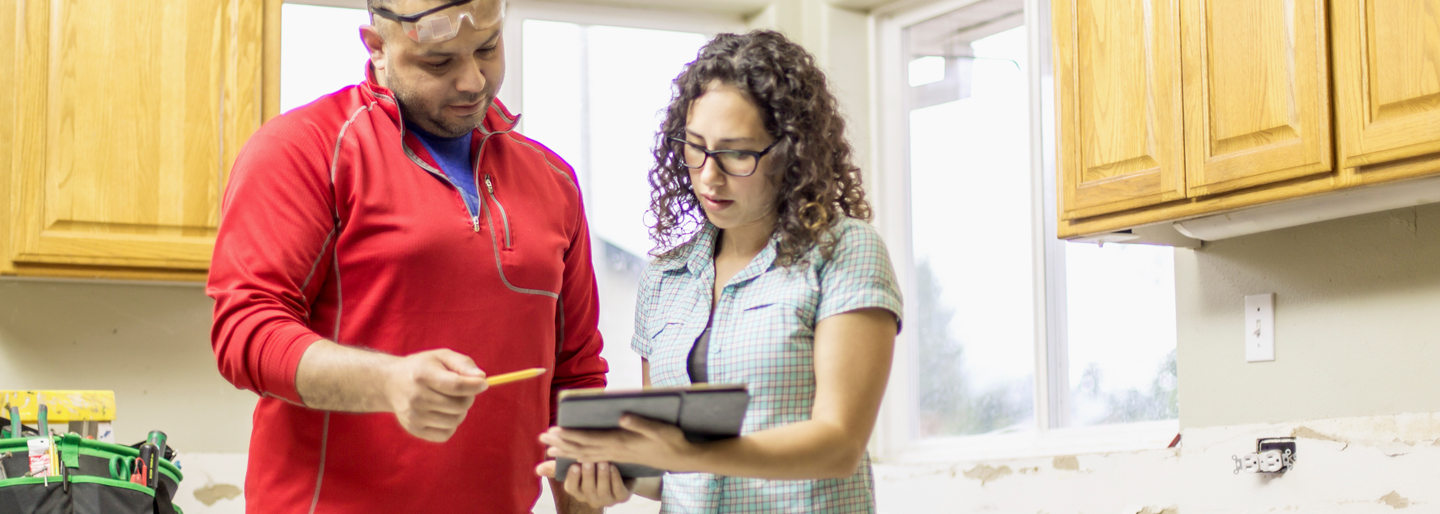Whether you’re thinking about a facelift for the kitchen and bathroom, adding a new room or putting on a new roof, a home improvement project can be a daunting task, and building your new home from scratch can be flat-out overwhelming.
That said, finding your “dream” general contractor can make it one of the most rewarding experiences you will have as a homeowner.
So, how do you find the right general contractor for your project? If you’re not sure where to begin, here are some quick tips on finding your “contractor fit”:
- Look locally. “It's best if you can work with a general contractor who regularly builds in your part of town. Codes change from city to city, and sometimes inspection items can be overlooked. Typically, a general contractor will have subcontractors that are familiar with local codes as well, and this saves time during inspections,” says Jim Kostusik, president of Redstone Homes in Kansas City. He adds, “When hiring a general contractor, a common mistake homeowners make is not comparing proposals/budgets apples to apples. Everyone is very price conscious, but at the end of the day the price of an underbid/low-quality project will remain for years to come.”
- You are not dating your contractor, but your personalities should be a fit. Make sure you feel great about his/her level of professionalism, personality, intelligence and integrity. You will not only spend time with this person; you will likely have to deal with stress and setbacks together.
- Interview potential contractors. Before conducting your interviews, make a list of issues and concerns and have it readily available to ask the fundamental questions and make the best possible selection.
- Choose a licensed and insured contractor. A licensed contractor is qualified to perform the job; their insurance should cover damage to your house if it occurs. It also takes care of workman’s comp if one of their employees gets hurt vs. a claim being made on your insurance. To verify if your prospective contractor is licensed, you can contact your state license board; to make sure they are insured – simply ask the contractor to give you a certificate of insurance for workers compensation and liability. Each job also must have a builder’s risk policy if there is any theft or loss on the job.
- Think about energy bills before you build a new home. For instance, on new builds, Redstone hires an independent energy auditor who completes a whole house energy audit. At the end of the audit, they will provide a HERS # for the new home. Energy efficiency is so important because you have one shot to build the shell as efficient as possible (budget allowing).
- Get referrals and check online reviews. Ask friends, co-workers and family members if they have first-hand experience with an excellent contractor. Check Google Reviews. Kostusik gets 100 percent of his work from referrals. “Happy clients tell everyone they know about their remodel, and their new home is easily seen. I try to educate my clients the best I can on different aspects and options with their new home or remodeling project so when they make a decision, it's an educated decision and 99.9 percent of the time they are happy with it.”
- Communicate. “Communication is so important, and with technology, there shouldn't be a reason why general contractors and clients don't communicate. I try to meet with my clients at different phases of the project because sometimes intent can get lost in a text or email and face to face is just the best good old-fashioned way to meet,” says Kostusik.
- Always have a contract and don’t pay too much up front. A well-drafted construction contract sets out the work to be done, the price to be paid for the work, and the terms and conditions of payment. The contract should also allocate various foreseeable risks between the parties. The warranty should be spelled out as well. For example, Redstone Homes provides a one-year warranty plus any extended warranties provided by any subcontractors or suppliers that may apply or can be purchased.
Categories:
Your Home


